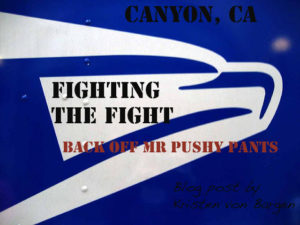Update: 10/31/14
Original Post 9/14/2014

What’s happening in the incredibly unique community of Canyon, CA is a perfect example of this. Their post office is the vital hub of their community but the U.S. Postal service has decided to eliminate it as part of their goal to save millions of dollars in revenue. Eliminating post offices to save money is logical, but taking Canyon’s away (and the salary of their one postmaster!) will do little to the overall budget and it just does not makes sense.
There’s nowhere else like Canyon left this in the entire country (in fact most people don’t even know where it is in the country and that’s how the people of Canyon like it). The counter cultural, unincorporated community of Canyon is actually just a mile away from one of the country’s largest cities, Oakland, but it has been able to resist many modern influences despite struggles–like the current threat of eliminating their post office.
There are just two public institutions in Canyon: a 3-room school house and the post office, which has been the center of the community since 1852.
The U.S. Postal Service has been downsizing and reducing costs, as we all know, and as a result they have decided to close Canyon’s post office and eliminate the Elena Tyrell’s position as Postmaster.
In many cities and towns, the social impact of this type of financial top-down decision imposed by big bureaucracy would be minimal. In Canyon, however, the effect on the community is substantial. The post office in Canyon is not just a post office. It is the place where residents meet on a daily basis to collect their mail (as there is no delivery service in town–so they don’t even have to pay a person to deliver the mail). A gathering place is essential to the strength of a community, and that is exactly what the post office is to Canyon.
Chris Lavin, a writer who has been covering the story, reported that “at a meeting with Canyon residents two weeks ago, officials said that declining revenues, coupled with higher worker costs, made small post offices infeasible.”
But how much can it really save the huge U.S. Postal Service in revenue to close Canyon’s post office? Is the salary of one person really worth more than the incredibly valuable sense of community Tyrell and the Post Office provide to Canyon?
Absolutely not! It’s awful when big bureaucracy mows down such unique and cool things going on for the benefit of a few extra dollars. Our country is becoming so generic-rified that the truly special places must be preserved! Or at very least gracefully overlooked, which is, I’m sure, how the residents of Canyon would prefer it.
Residents of Canyon have brought up a very valid point regarding whose extra dollars the U.S. Postal Service is saving–theirs. Since they do not have a say in where there taxes are being used, this is even more frustrating. In Lavin’s recent article, “Strike a blow for democracy – save Canyon’s post office,” he writes that “the U.S. Postal Service was charged with “binding the nation together.” In short, it emulated the very building of our democracy. Now that is falling apart…It’s important to remember that we as Americans own these resources – timber, wilderness and post offices. Yet the government is selling them off like items on eBay, and we’re not getting a percentage.”
So what can we do about it? We can contact our senators, Barbara Boxer and Dianne Feinstein and let them know why Tyrell should keep her job and Canyon’s Post Office must stay open.
We can also get this story out there so more people can hear it. I am wildly appreciative of anywhere that can publicize this!
There is an excellent book about Canyon by John van der Zee entitled, Canyon: The story of the Last Rustic Community in Metropolitan America.
“Canyon recounts the struggle for survival, against powerful and determined opposition, of a counter-cultural community tucked in a redwood canyon less than a mile from the city of Oakland, California. A community of individuals united by the idea of living complementary to nature rather than subduing it, the men and women of Canyon developed strategies of community organization, resistance, management of resources and political moxie-some foolish, some prescient—that allowed the community to survive, barely…
“Canyon is a small assemblage of mostly unconventional dwellings, mostly built by the nonconformists who live in them, it is a consciously ecological community that recycles everything it can. In Canyon, the mutual respect and the cohesion of neighbors revive the vital satisfactions once intrinsic in human communities, and its ‘civil agencies’ are functions of the inhabitants.”
References
“Canyon Post Office on Slow Road to Closure.” Chris Lavin. La Morinda Weekly. September 10th, 2014. http://www.lamorindaweekly.com/archive/issue0814/Canyon-Post-Office-on-Slow-Road-to-Closure.html
“Strike a blow for democracy – save Canyon’s post office.” Chris Lavin. SF Gate. August 28th, 2014.
Thursday, August 28, 2014 http://www.sfgate.com/opinion/openforum/article/Strike-a-blow-for-democracy-save-Canyon-s-post-5719893.php
Canyon: The story of the Last Rustic Community in Metropolitan America. John van der Zee. Grizzly Peak Press. 2010.